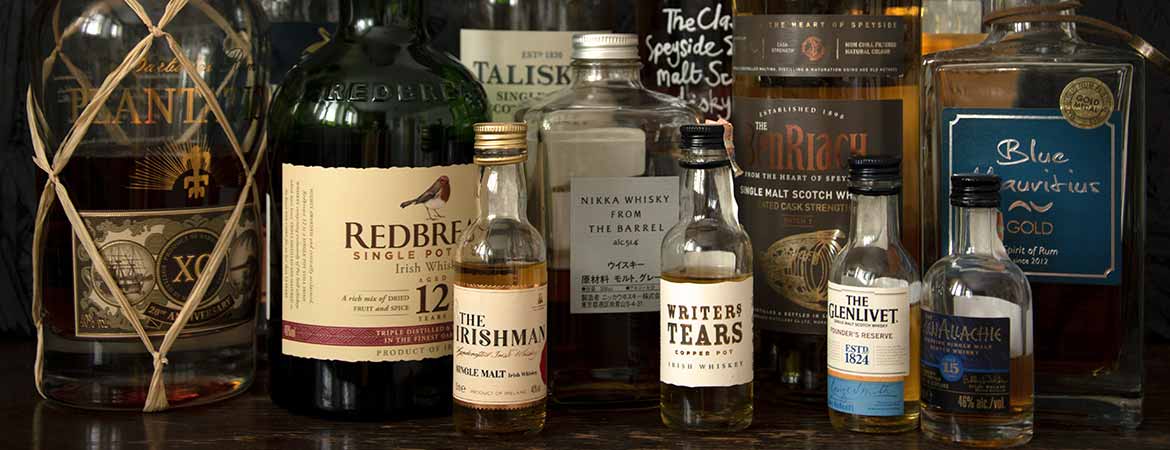Key Takeaways
Unique Production Processes: Irish Whiskey is typically triple-distilled for smoothness, often in copper pot stills. Scotch Whisky uses traditional pot still distillation, frequently incorporating peated barley.
Geographic Significance: Irish Whiskey, central to Irish culture, is exclusively made in Ireland. Scotch Whisky, integral to Scottish heritage, varies greatly across regions, producing distinct styles like Scottish single malts.
Flavor Profiles: Irish Whiskey is generally smoother and lighter, with brands like Jameson showcasing this style. Scotch Whisky ranges from floral Speyside single malts to peaty Islay whiskies.
Aging Processes: Irish Whiskey predominantly uses ex-bourbon barrels for aging, enhancing smoothness. Scotch Whisky employs diverse casks, including sherry barrels, adding complexity, especially in single malts.
Mash Bill Variations: Irish Whiskey typically features a mix of malted and unmalted barley. Scotch Whisky’s mash bill is predominantly malted barley, with variations in peating levels contributing to diverse flavor profiles.
Irish whiskey vs Scotch whisky comparison
What is Irish Whiskey?
Irish whiskey is distilled and aged in Ireland, known for its smooth and often triple-distilled quality. This whiskey can be made from a mix of malted and unmalted barley in a pot still, giving it a unique flavor profile. Unlike Scotch, Irish whiskey typically avoids the use of peat, resulting in a smoother, less smoky product. It includes types like single malt, grain whiskey, and single pot still whiskey.
Characteristics of Irish Whiskey
Grain Ingredients: Malted and unmalted barley, sometimes mixed with other grains.
Distillation: Often distilled three times in both pot and column stills.
Region Influence: Influenced by Ireland’s lush, green environment, with less emphasis on peat.
Aging Process: Aged for a minimum of three years in oak barrels.
Flavor Profile: Generally smoother and lighter than Scotch, with hints of fruit, vanilla, and spice.
ABV: Typically around 40% ABV.
Short overview of Scotch Whisky
Scotch whisky, often simply called Scotch, is a malt or grain whisky made in Scotland. To bear the name ‘Scotch’, the whisky must be made from malted barley, distilled at a Scottish distillery, and aged in oak barrels for a minimum of three years. The production process often involves distilling the spirit twice and sometimes using peat in the drying process of the malt, imparting a distinctive smoky flavor. This smoky character is particularly pronounced in Scotch whiskies from the Islay region. Scotch whisky comes in various types, including single malt, blended malt, single grain, and blended grain whisky.
To explore more about what qualifies as Scotch Whisky, read our article Scotch vs Bourbon vs Whisky vs Whiskey, otherwise jump to our table that compares Irish and Scotch Whisky.
Comparison table: Difference between Irish and Scotch Whisky
Origin
Production Process
Key Ingredients
Aging Process
Flavor Profile
Distinct Qualities
Scotch Whisky
Scotland; historical, cultural whiskey heritage
Pot still distillation, peated barley often used
Malted barley; blends have malt and grain whiskies
Variety of casks, including sherry, bourbon
From light, floral to deep, peaty, smoky
Regional diversity, peat, smoke flavors
Irish Whiskey
Ireland; traditional, renowned for smooth whiskey
Typically triple distilled, smooth, usually no peat
Malted and often unmalted barley, pot still whiskeys
Mainly bourbon barrels, some use sherry or other types
Smooth, light fruit, vanilla, spicy finish sometimes
Triple distillation, pot still character, silky smoothness
Sipping Preferences: Irish whiskey and scotch whisky
The choice between Scotch whisky and Irish whiskey often boils down to personal taste preferences. For those who enjoy a robust, smoky flavor, Scotch, especially from regions like Islay, would be a preferred choice. In contrast, if you lean towards a smoother, more approachable drink, Irish whiskey, with its triple-distilled smoothness, is ideal.
Tasting sessions for Scotch might focus on the distinct characteristics of each region, while Irish whiskey tastings can highlight the difference between pot still, grain, and malt whiskeys.
Final Thoughts: Difference between Scotch whisky and Irish whiskey
In the world of whiskies, Scotch and Irish varieties hold their own with distinct flavors and rich histories. While Scotch brings a diverse range of tastes, from the heavily peated to the delicately smooth, Irish whiskey offers a universally appealing smoothness and lightness. Both types of whiskey showcase the artistry and tradition of their respective regions, making them not just beverages but cultural symbols of Scotland and Ireland.
Frequently Asked Questions about Scottish Whisky and Irish Whiskey
Share on social media:









